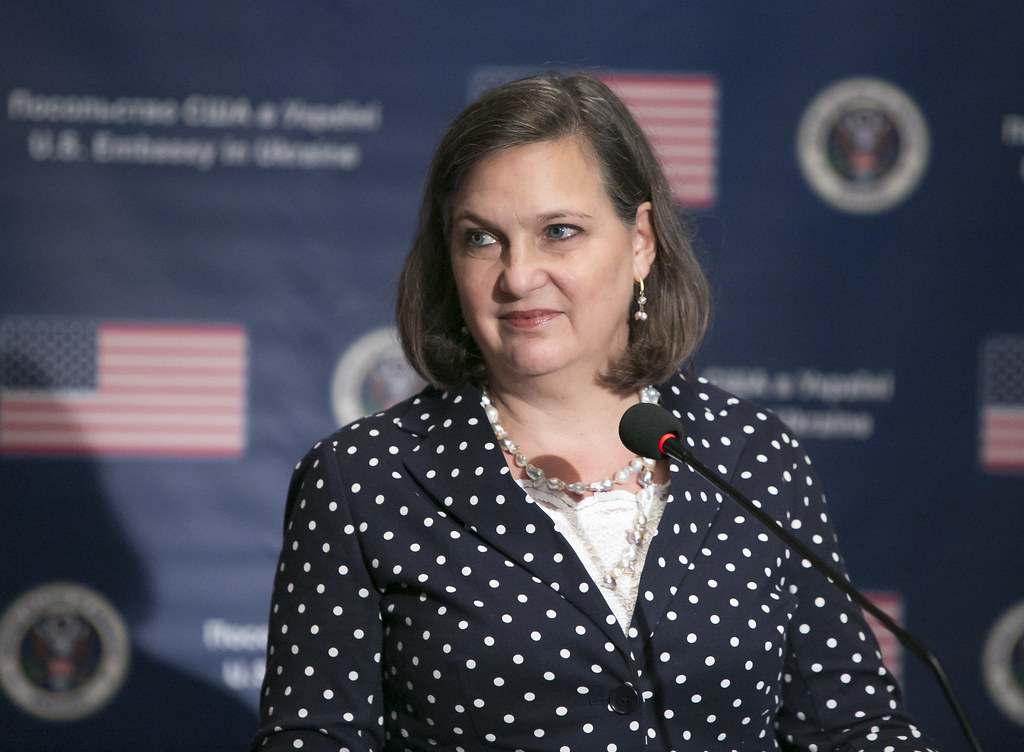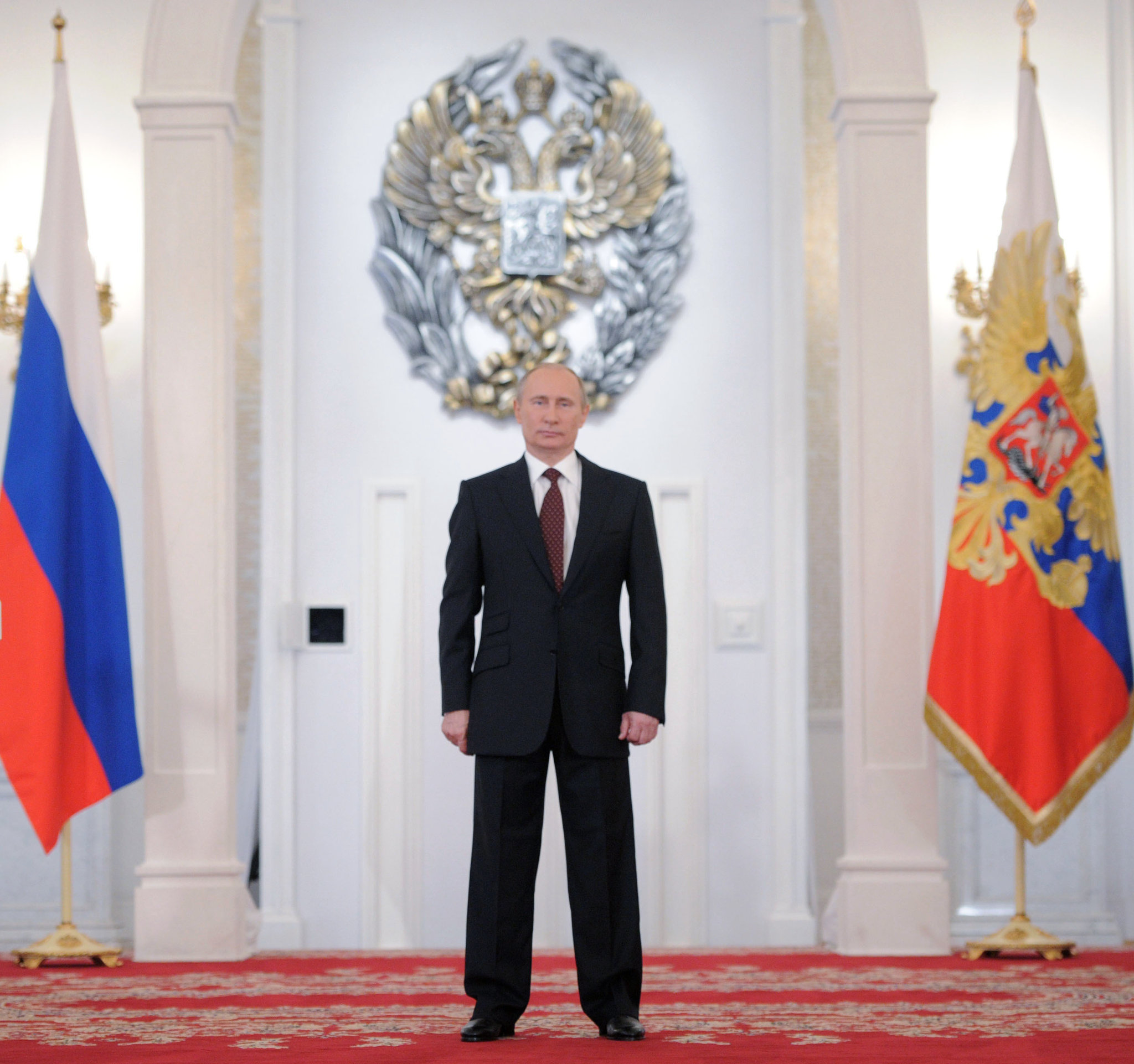According to Kremlin-connected analyst Fedor Lukyanov, the Joseph Biden administration had to work hard with Moscow to make Under Secretary Victoria Nuland’s visit possible. The United States seeks a mutually accepted modus vivendi with Russia regarding the Donbas problem; and Biden’s team is prepared to exert its influence on Ukraine to cooperate toward that goal. Moscow would therefore expect Washington to “adjust Ukraine’s profile downward in the US policy” (Bfm.ru, October 10; Global Affairs, October 11).
Nuland’s revisiting of the 2015 Minsk “agreement” (see Part 1) comes as a surprise. One month ago, President Biden and the other officials receiving Ukrainian President Volodymyr Zelenskyy in Washington never mentioned the Minsk “agreements” or a special status for Donbas. The White House thereby deferred to the Ukrainian delegation, and it seemed that those controversial words had been dropped for good (see EDM, September 7, 9).
For all its satisfaction with the talks on Ukraine, Moscow apparently stalled on proposals that Nuland brought up unrelated to Ukraine (cyber-hacking, embassy personnel parity, visa reciprocity). Deputy Foreign Minister Sergei Ryabkov warned that “a US military presence in Central Asia [to monitor Taliban-ruled Afghanistan] is unacceptable in any form” and that Russia will be watching, lest Australia violate the treaty on nuclear non-proliferation after it joins the Australian-British-US (AUKUS) fleet of nuclear-powered submarines (TASS, October 13).
No information, official or unofficial, has surfaced in Kyiv regarding Nuland’s Moscow visit on the Biden administration’s behalf. Whether the visit, directly affecting Ukraine, was discussed with the Ukrainian authorities is not known either. The Ukrainian Presidential Office has only reported one telephone call with Nuland: on October 7, Presidential Office Chief Andriy Yermak and Nuland discussed the security situation around Ukraine, the [deadlocked] “Normandy” negotiations (Russia, Germany, France, Ukraine), and “the importance of strengthening the role of the United States in the processes of peaceful resolution of the conflict” (Ukrinform, October 7).
Nuland has re-entered a scene that was hers in 2015–2016 as Assistant Secretary of State in the Barack Obama administration. She visited Kyiv fairly regularly during that period, several times with then–Secretary of State John Kerry and several times on her own. Nuland tried hard to persuade then-president Petro Poroshenko and the Verkhovna Rada (Ukrainian parliament) to start fulfilling the 2015 Minsk “agreement’s” political clauses, but she did not progress too far in that effort. From May 2015 until almost the end of the Obama administration in the fall of 2016 Nuland operated the US side of a bilateral channel of negotiation with Vladislav Surkov (Kozak’s predecessor on Ukrainian affairs in Russia’s presidential administration). Nuland and Surkov held several meetings, of which three became known, and did not achieve results either. No US negotiator is involved at present, whether in an existing group format or as a special envoy. Kyiv has been pleading for the United States to join the Normandy format or for a US negotiator to mediate between Ukraine and Russia or, alternatively, interact bilaterally with a Russian counterpart.
Some speculation exists in Ukraine that the United States may before long decide to enter the negotiations on the Donbas conflict, not in the Normandy format but on a bilateral basis with Russia. In this view, the US and Russia could stabilize the situation in short order, ensure de-escalation and stabilization and, on that basis, introduce a political solution. In that case, the “sidelining” of the Donbas problem could take the legal-political form of a special status as per the Minsk “agreement.” Such a scenario would, however, only “conserve” a precarious, insecure situation.
Trending Now
It is a common observation that the Biden administration views its relations with Russia in part through the prism of the US-China contest. To focus attention and resources on that contest, the administration calls for “stable and predictable relations with Russia.” Concurrently, it seeks Russia’s cooperation on problems that affect the US and various allies considerably more than they affect Russia—e.g., Iranian and North Korean nuclear and missile proliferation or turmoil in parts of the Middle East.
Major challenges and threats, however, originate for the most part in Russia itself:
- disinformation operations,
- extortionist cyber-hacking,
- instrumentalized energy dependencies,
- dangerous and threatening military exercises,
- ongoing warfare in Ukraine,
- seizures of territory from neighboring countries,
- military operations in the Middle East and Africa,
- militarization of the Arctic,
- Russia’s hand in Venezuela’s collapse.
Nevertheless, the Biden administration apparently hopes for Russia to cooperate with US priorities that Russia does not necessarily or fully share—e.g., a new strategic arms treaty and ambitious climate goals.
Read More:
- Putin doesn’t live in a parallel reality but revels in his ability to speak and act in this one with impunity, Portnikov says
- Russia hopes for a U-turn in the EU’s energy policy
- Zapad 2021 suggests, in event of war, Moscow could seize Baltics but lose Kaliningrad
- EU reaffirms course on political-economic integration with Ukraine, calls Russia party to Donbas war: summit outcomes
- GULAGU.Net exposes systemic torture and rape of prisoners in Russia; regime responds with investigations and denial of service attack on portal
- SBU says it prevented Russian agent’s arson attack on Hungarian consulate
- Disinforming aftermath of curbing disinformation: Russian propaganda targets YouTube’s action against RT
- Russia returning to Sovietism not because of the dictatorship but because most Russians like it, Vitukhnovskaya says
- Russian opposition shows it doesn’t understand situation, Pastukhov says
- Ukrainian anti-oligarch law inadvertently shines spotlight on Russian-linked members of presidential entourage

![With U.S. Secretary of State John Kerry looking on, Russian President Vladimir Putin greets Assistant Secretary of State for European and Eurasian Affairs Victoria Nuland before the Secretary's meeting with the Russian President at the Kremlin in Moscow, Russia, on December 15, 2015. [State Department photo/ Public Domain]](https://euromaidanpress.com/wp-content/uploads/2021/10/Russian_President_Putin_Greets_Assistant_Secretary_Nuland_Before_His_Meeting_With_Secretary_Kerry_at_the_Kremlin_in_Moscow.jpg)



